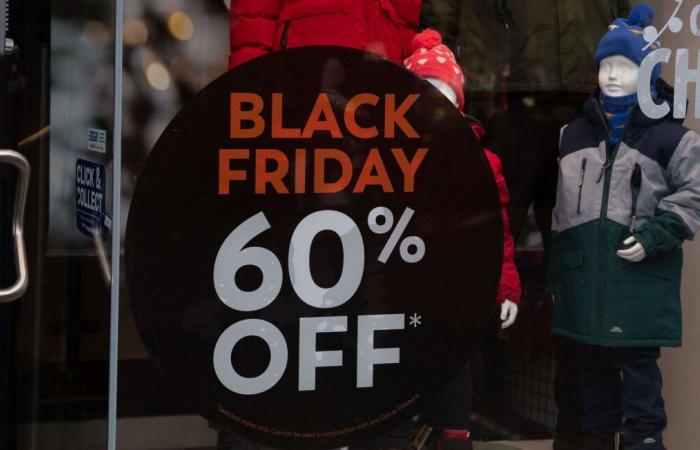One month before Christmas, we are in the middle of Black Friday and it can be tempting to rush to the stores to buy your gifts like a rat, taking advantage of tempting discounts to spoil the family without ending up broke. Except that from a rat, you can easily turn into a pigeon if you don't take a few precautions before taking out your bank card, so that Black Friday doesn't become a “Bloody Sunday”.
Technically, Black Friday falls on November 29 this year. Except that in practice, we are more in a “black week”, or even a “black month”. We're not going to repeat the pitch, everyone knows, “it's a bit like sales, but less regulated”, explains to 20 Minutes Jean-Christophe Lampe, president of UFC Que Choisir of Hauts-de-France. And if the organization has not spotted any scams particularly linked to Black Friday, the UFC emphasizes that you should still be wary.
The misleading “reference price”
“For two years the regulatory context has changed and we are now talking about “reference prices” on which professionals must base themselves to apply their reductions,” continues the UFC. It is the “Omnibus” directive which specifies that “any reduction announcement must indicate the lowest price charged by the professional during the 30 days preceding the promotion”. It doesn't look bad on paper, except that a paragraph allows you to compare your prices to the competition: “There, we are no longer talking about discounts but about comparison prices and the 30-day rule no longer applies », explains Grégory Caret, director of the Consumer Observatory.
This gives crazy reductions on a “price usually observed”, or even on a “price recommended by the manufacturer”. Like a “smartphone with a recommended price of 1,000 euros when it was released three years ago, sold 40% cheaper today,” takes Grégory Caret as an example. Moreover, according to the UFC, for reductions of 20 to 40% displayed, “the real discount is more of the order of 1 to 4%”.
Beware of overly good promises
The wisest thing, according to the UFC, is to prepare for your Black Friday, “three or four weeks before, by raising the price of what you want to buy and calculating yourself the real percentage of reduction”, insists Jean-Christophe Lampe. The enemy of a good deal is, according to him, impulsive purchases.
Read our articles on scams
Another rule to follow is to be wary of too good deals. “Black Friday is not the same as sales. Reductions beyond 50% may hide something, a retailer selling off end-of-series items for example,” warns the UFC. Or real scams, generally offered via social networks, says Grégory Caret. “On the occasion of Black Friday, we can see fake merchant sites copying reference sites flourish,” laments the director of the Consumer Observatory. Against this, the usual rules of caution for online purchases are essential, in particular not following a link from the networks, but typing the address of the site yourself.






